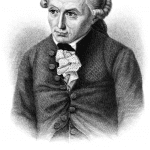That’s the thing: it means very little. It means “unaffiliated,” no more, no less. America’s young, swimming in the cultural soup that they do, have been awakened to a variety of traditions, rituals, and spiritualities, and seem interested in trying them out. They may not identify with a particular church, temple, or mosque, but they haven’t simply given up on spiritual longing.
And that is perhaps what is most curious about this—a desire for something beyond the material has not merely disappeared in spite of our many diversions and comforts. It seems able to co-exist with our current “Great Awokening”; it’s not as if a Leftward political movement has made the divine an impossibility (as some seem to suggest).
Granting all this, we might ask: is this a good thing? I, as a Catholic, think of something Simone Weil once wrote when queried in this way:
Religion in so far as it is a source of consolation is a hindrance to true faith; and in this sense atheism is a purification. I have to be an atheist with that part of myself which is not made for God. Among those in whom the supernatural part of themselves has not been awakened, the atheists are right and the believers wrong. (“Faiths of Meditation; Contemplation of the Divine,” The Simone Weil Reader, 417)
Weil does not mean that unbelief is always better than belief; rather, she means that the road to true faith may require overcoming idolatry. Sometimes people find faith repugnant because the only examples they have are those of a fetishistic, merely anthropomorphic deity—a “sky fairy” or some such, who grants wishes and is, in no meaningful sense, “supernatural.” Moving beyond this, she contests, may be a necessity.
Some might say: well, then, aren’t Dawkins and his ilk better than astrology? No, not quite, because Dawkins and those like him have no room for the “supernatural” at all; rather, their faith is in something mundane, something simple. Being open to transcendence is better than this.
What I do see in her words, however, I an indictment of the “Fourth Great Awakening,” that is to say, modern evangelicalism, especially as it has constituted itself since the 1970s. Here, there can be a simplistic belief in an anthropomorphic, almost pagan, deity who watched over one with a vengeful eye. What’s more, the Moral Majority and its variants saw themselves as not unlike the American state church, exporting liberalism (the political philosophy) to the Global South and the Soviet world. That’s how we got a robust evangelicalism in Brazil, after all.
There’s more to the story here (and this is a topic I would like to treat at length in another post). But, for now, the point is simple enough: if there is a renewal of America religion it is happening in the ashes of our former state church, building on what this project left broken. Kanye and Justin Bieber may lend some life to that set yet, but its time has passed (and, even then, Kanye’s emphasis on the “social kingship of Christ” does not feel much like the American evangelical church of yore—it is French, he Ahmari).













